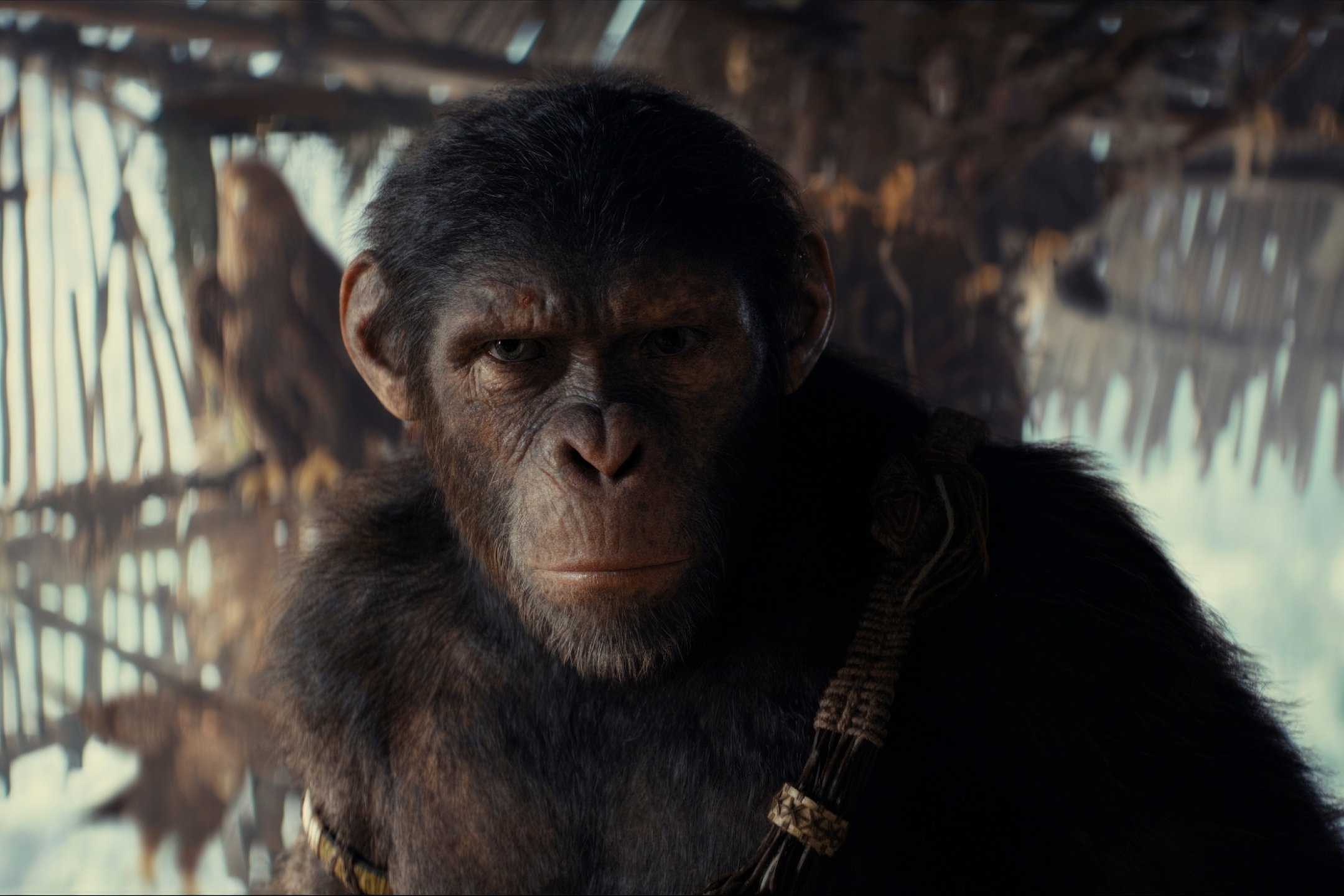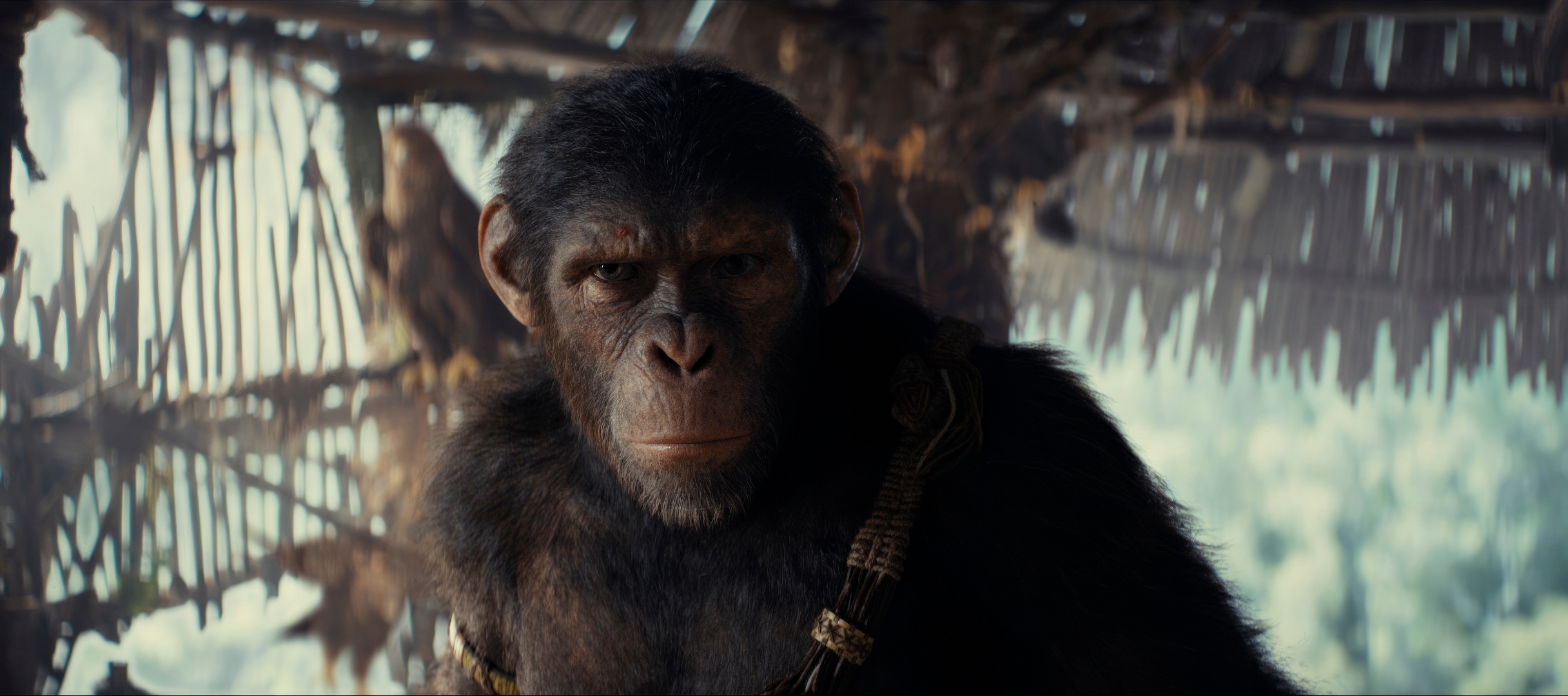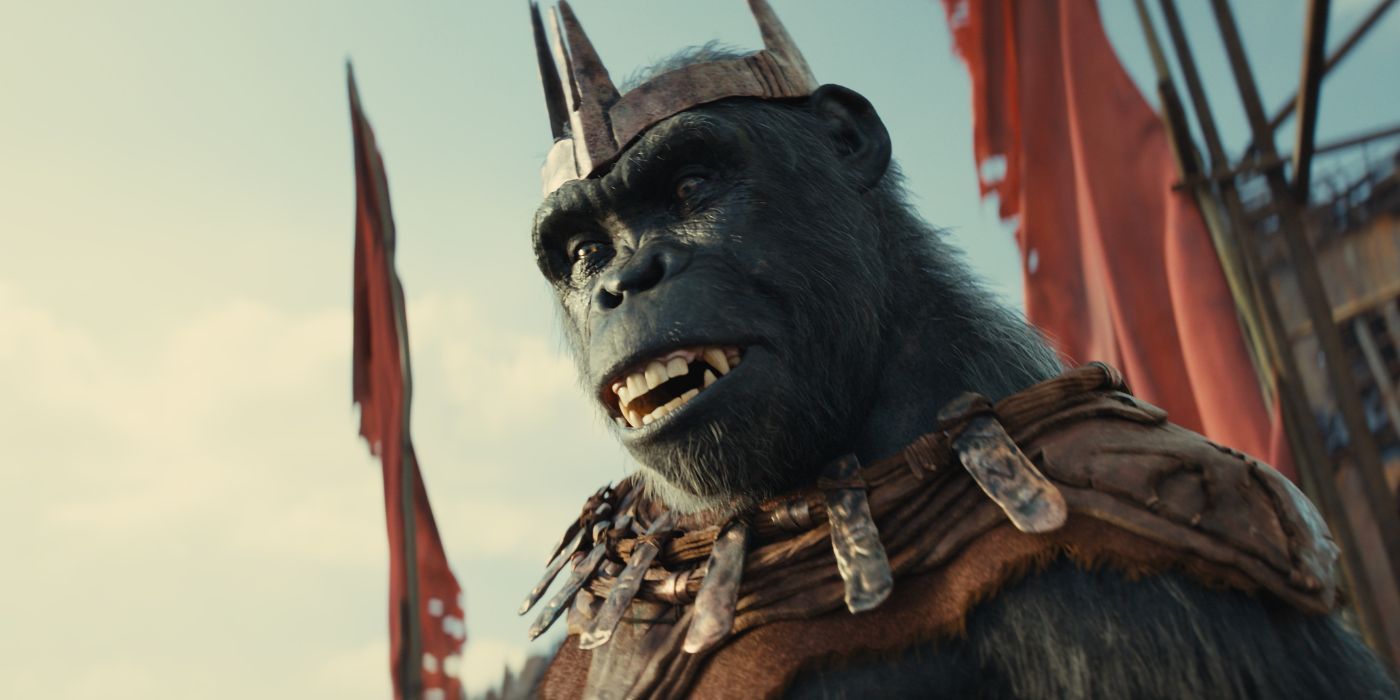“Kingdom of the Planet of the Apes (2024): A Bold New Chapter in the Ape Saga
Introduction
With great enthusiasm, we are excited to delve into the fascinating topic of Kingdom of the Planet of the Apes (2024): A Bold New Chapter in the Ape Saga. Let’s weave together insightful information and offer fresh perspectives for our readers.
Kingdom of the Planet of the Apes (2024): A Bold New Chapter in the Ape Saga

"Kingdom of the Planet of the Apes," directed by Wes Ball, marks a significant new chapter in the enduring and beloved "Planet of the Apes" franchise. Picking up generations after the reign of Caesar, the film boldly charts a course into uncharted territory, exploring the complex evolution of ape society, the lingering echoes of Caesar’s legacy, and the enduring struggle for dominance between apes and humans. While it carries the weight of its predecessors, the film carves out its own identity, offering a visually stunning and thought-provoking exploration of power, faith, and the future of two species locked in a perpetual dance of conflict and potential coexistence.
The film’s greatest strength lies in its world-building. The narrative leaps forward several generations, allowing the filmmakers to craft a society that is both familiar and radically different from the world Caesar built. Apes have become the dominant species, but their society is fractured and diverse. We are introduced to various clans, each with its own customs, beliefs, and interpretations of Caesar’s teachings. Some live in harmony with nature, while others, driven by ambition and a distorted understanding of history, seek to build empires and subjugate others.
Plot Synopsis (Without Spoilers):
The story centers on Noa (Owen Teague), a young chimpanzee from the Eagle Clan, a peaceful community that lives in harmony with nature, training eagles for hunting and companionship. Their idyllic existence is shattered when a brutal ape army, led by the tyrannical Proximus Caesar (Kevin Durand), attacks their village, kidnapping many of Noa’s clan, including his family. Proximus Caesar, a bonobo with a twisted interpretation of Caesar’s teachings, seeks to unlock the secrets of human technology and establish a vast ape kingdom.
Driven by a burning desire to rescue his family, Noa embarks on a perilous journey. Along the way, he encounters Mae (Freya Allan), a young human woman who possesses knowledge that could change the balance of power between apes and humans. He also crosses paths with Raka (Peter Macon), an orangutan and a wise scholar who has dedicated his life to preserving the true teachings of Caesar.
Together, Noa, Mae, and Raka must navigate a treacherous landscape, confront the ruthless Proximus Caesar, and ultimately decide the fate of both ape and human civilizations. The film explores themes of freedom, oppression, the corrupting influence of power, and the importance of understanding history to avoid repeating its mistakes.
Performances:
The performances are uniformly excellent, with the actors seamlessly blending into their motion-captured ape characters.

Owen Teague as Noa: Teague delivers a nuanced and compelling performance as Noa. He portrays the young chimpanzee’s transformation from a naive and sheltered member of his clan to a courageous and determined leader with remarkable emotional depth. Teague effectively conveys Noa’s vulnerability, his growing understanding of the world’s complexities, and his unwavering commitment to his family and his ideals. He captures the essence of a character grappling with immense responsibility and the burden of shaping the future.
-
Kevin Durand as Proximus Caesar: Durand is absolutely captivating as Proximus Caesar. He embodies the character’s arrogance, brutality, and twisted intelligence. Proximus is not simply a villain; he’s a complex and charismatic figure who believes he is acting in the best interests of his species. Durand imbues the character with a chilling charisma, making him both terrifying and strangely compelling. His performance is a masterclass in portraying a charismatic tyrant who uses fear and manipulation to maintain his power.
-
Freya Allan as Mae: Allan brings a sense of mystery and resilience to the role of Mae. She is a resourceful and intelligent human who holds secrets that could be crucial to the future of both species. Allan portrays Mae’s vulnerability and her determination to survive in a world dominated by apes. Her performance is nuanced, hinting at a deeper history and a complex understanding of the conflict between apes and humans.
-
Peter Macon as Raka: Macon provides a grounding and wise presence as Raka. He is a keeper of Caesar’s true teachings and serves as a mentor to Noa. Macon brings gravitas and warmth to the role, embodying the spirit of wisdom and compassion that Caesar represented. He is the moral compass of the film, guiding Noa on his journey and reminding him of the importance of empathy and understanding.

The supporting cast also delivers strong performances, bringing depth and richness to the diverse ape society depicted in the film.
Visuals and Special Effects:
"Kingdom of the Planet of the Apes" is a visual masterpiece. The motion capture technology has reached new heights, creating incredibly realistic and expressive ape characters. The apes’ movements, facial expressions, and interactions are remarkably lifelike, blurring the line between animation and reality. The visual effects are seamlessly integrated into the film, creating a believable and immersive world.
The film’s cinematography is stunning, capturing the beauty and grandeur of the post-apocalyptic landscape. The lush forests, towering ruins, and sprawling ape settlements are brought to life with breathtaking detail. The use of light and shadow is particularly effective, creating a sense of atmosphere and drama.
The action sequences are also visually impressive, with the apes exhibiting incredible agility and strength. The battles are visceral and exciting, showcasing the apes’ unique fighting styles and their resourcefulness in using their environment to their advantage.
Themes and Storytelling:
The film delves into several compelling themes:
-
The Legacy of Caesar: Caesar’s teachings and his vision of a peaceful coexistence between apes and humans are central to the story. The film explores how Caesar’s legacy has been distorted and manipulated by different ape factions, leading to conflict and oppression. It raises questions about the true meaning of Caesar’s message and how it can be applied to the challenges of the present.
-
Power and Corruption: The film examines the corrupting influence of power and the dangers of unchecked ambition. Proximus Caesar’s rise to power serves as a cautionary tale about the allure of dominance and the consequences of sacrificing morality for personal gain.
-
Faith and Belief: The film explores the role of faith and belief in shaping societies. The different ape clans have their own interpretations of Caesar’s teachings, leading to conflict and division. The film raises questions about the nature of faith, the dangers of religious extremism, and the importance of critical thinking.
-
The Relationship Between Apes and Humans: The film continues to explore the complex relationship between apes and humans. While apes have become the dominant species, humans are not entirely absent from the world. The film raises questions about the possibility of coexistence, the nature of intelligence, and the definition of humanity.
-
The Cycle of History: One of the most poignant themes is the cyclical nature of history. The film demonstrates how easily societies can repeat the mistakes of the past, even when they are aware of them. The apes’ struggle for dominance mirrors the history of human civilization, suggesting that the same patterns of conflict and oppression can emerge regardless of species.
The storytelling is engaging and well-paced, with a good balance of action, drama, and character development. The film builds suspense effectively, keeping the audience on the edge of their seats. The plot twists and turns are unpredictable, adding to the excitement and intrigue. While the film nods to its predecessors, it stands firmly on its own, offering a fresh perspective on the "Planet of the Apes" mythology.
Strengths:
- Stunning Visuals and Special Effects: The film is a visual feast, with groundbreaking motion capture technology and breathtaking cinematography.
- Compelling Performances: The actors deliver nuanced and believable performances, bringing the ape characters to life with remarkable emotional depth.
- Thought-Provoking Themes: The film explores complex and relevant themes about power, faith, and the future of civilization.
- Engaging Storytelling: The plot is well-paced and suspenseful, keeping the audience invested in the characters and their journey.
- Excellent World-Building: The film creates a believable and immersive post-apocalyptic world, with diverse ape societies and a rich history.
Weaknesses:
- Pacing Issues: At times, the film’s pacing can feel slightly uneven. Certain scenes could have been trimmed to maintain a more consistent sense of momentum. While not a major flaw, it is noticeable.
- Familiar Tropes: While the film offers a fresh perspective, it does rely on some familiar tropes from the "Planet of the Apes" franchise and post-apocalyptic narratives in general. Some viewers might find certain plot points predictable.
- Limited Human Character Development: While Freya Allan delivers a strong performance as Mae, her character’s backstory and motivations could have been explored in greater depth. The film primarily focuses on the ape characters, which is understandable, but a more nuanced portrayal of the human perspective would have added another layer of complexity.
Overall:
"Kingdom of the Planet of the Apes" is a worthy addition to the "Planet of the Apes" franchise. It is a visually stunning, thought-provoking, and emotionally resonant film that explores complex themes about power, faith, and the future of civilization. While it has some minor flaws, its strengths far outweigh its weaknesses. The film is a must-see for fans of the franchise and anyone who enjoys intelligent and engaging science fiction. It successfully launches a new chapter in the saga, leaving audiences eager to see where the story goes next. It earns a solid 4 out of 5 stars. The film’s exploration of Caesar’s legacy, coupled with its stunning visuals and strong performances, make it a memorable and impactful cinematic experience. It’s a bold step forward for the franchise and a testament to the enduring power of the "Planet of the Apes" mythology. The ending leaves plenty of room for sequels, and the potential for further exploration of the ape-human dynamic is vast and exciting. The kingdom has only just begun.